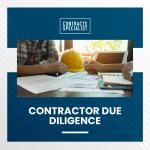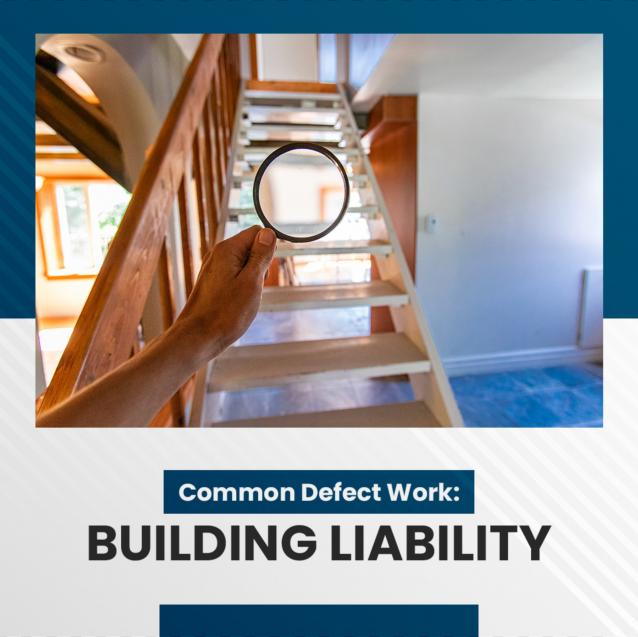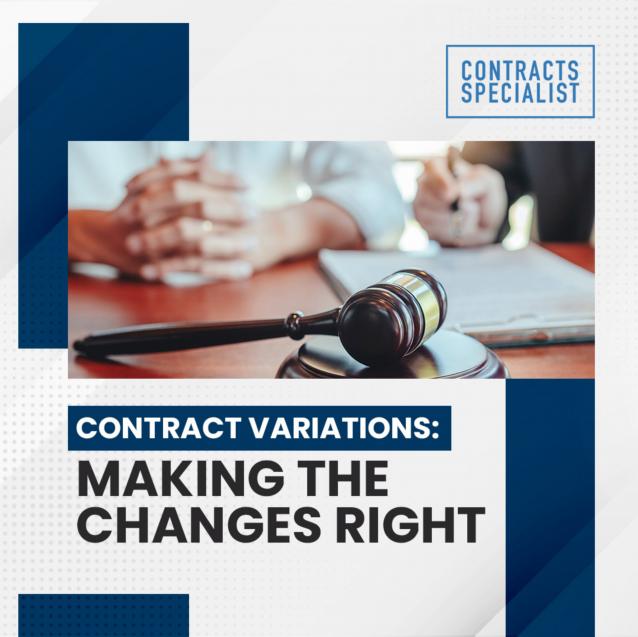
Contractor Due Diligence
By Contracts Specialist|December 21, 2022
Often, late payments and underpayments are worrisome situations to be in for Sydney based-contractors. The situation can delay their employee’s wages or, even worse, they can go bankrupt.
What is even alarming is that in Australia, the majority of construction businesses (91%) that are going bankrupt are the small ones. The top reason is inadequate cash flow, with almost half (44%) of these companies stating this reason for bankruptcy.
If you do not want to become part of this statistic, then carry out due diligence in getting to know the Builder you plan to work for.
Exercising due diligence is important. While it can take a bit of your time, learning more about your builder before accepting to work on a building project may prevent payment issues from happening.
Benefits of Exercising Due Diligence
How to Exercise Due Diligence
In conducting your investigation, you can get the information you need ithrough public documents, or in private conversations with the people who’ve dealt with the same Builder.
Accomplishing Your Due Diligence Checklist
You can look for the above information on government websites such as Fair Trading and ASIC. You can also do a Google Search for information like reviews and past projects.
You can make sense of your gathered data by making a Due Diligence report. While not required by law, it is a helpful document that can guide you in making better business decisions.
In making one, Fair Trading has a set of guide questions that can help you outline your report. The questions are mostly about the things that you should consider before signing a building contract.
Let Us Help
Still unsure about whether to work in a Builder’s project? Consulting a construction lawyer can help you clear your head. They can help you analyse your due diligence data and your pending contract.
How long will the process take?
The due diligence process will only take a few hours of your time. For example, you can finish looking through your documents in an hour. But certain factors such as the availability of people you are trying to talk to can make your investigation longer.
Get expert advice with your investigation
If you need help in carrying out due diligence, Contracts Specialist can guide you.
We can help you weed out a dodgy builder from a reliable one. We can also look at your gathered data and your contract to see if there are red flags. We could also give you legal advice on your next steps.
What is even alarming is that in Australia, the majority of construction businesses (91%) that are going bankrupt are the small ones. The top reason is inadequate cash flow, with almost half (44%) of these companies stating this reason for bankruptcy.
If you do not want to become part of this statistic, then carry out due diligence in getting to know the Builder you plan to work for.
Exercising due diligence is important. While it can take a bit of your time, learning more about your builder before accepting to work on a building project may prevent payment issues from happening.
Benefits of Exercising Due Diligence
- Your job will most probably run smoothly.
- Practicing Due Diligence will minimise the risk of payment issues because you will discover how the builder manages his projects. So, when you know that the builder is trustworthy, you can carry on and invest your time and money into the project.
- You can enforce your rights under the Security of Payment Act.
- If the Builder is law abiding, they will honour your right to Security of Payment. This law was created to prevent Builders from ripping off their contractors, which is a common legal problem in Sydney.
How to Exercise Due Diligence
In conducting your investigation, you can get the information you need ithrough public documents, or in private conversations with the people who’ve dealt with the same Builder.
Accomplishing Your Due Diligence Checklist
- First, look for the following information about your builder:
- their licence and accreditations;
- their Australian Securities and Investments Commission (ASIC) registration extract;
- their Goods and Services Tax (GST) registration;
- their financial status;
- their working relationship with other builders and contractors;
- their past building projects; and
- their pending building disputes posted in Fair Trading, if any.
You can look for the above information on government websites such as Fair Trading and ASIC. You can also do a Google Search for information like reviews and past projects.
- Making a report
You can make sense of your gathered data by making a Due Diligence report. While not required by law, it is a helpful document that can guide you in making better business decisions.
In making one, Fair Trading has a set of guide questions that can help you outline your report. The questions are mostly about the things that you should consider before signing a building contract.
Let Us Help
Still unsure about whether to work in a Builder’s project? Consulting a construction lawyer can help you clear your head. They can help you analyse your due diligence data and your pending contract.
How long will the process take?
The due diligence process will only take a few hours of your time. For example, you can finish looking through your documents in an hour. But certain factors such as the availability of people you are trying to talk to can make your investigation longer.
Get expert advice with your investigation
If you need help in carrying out due diligence, Contracts Specialist can guide you.
We can help you weed out a dodgy builder from a reliable one. We can also look at your gathered data and your contract to see if there are red flags. We could also give you legal advice on your next steps.



